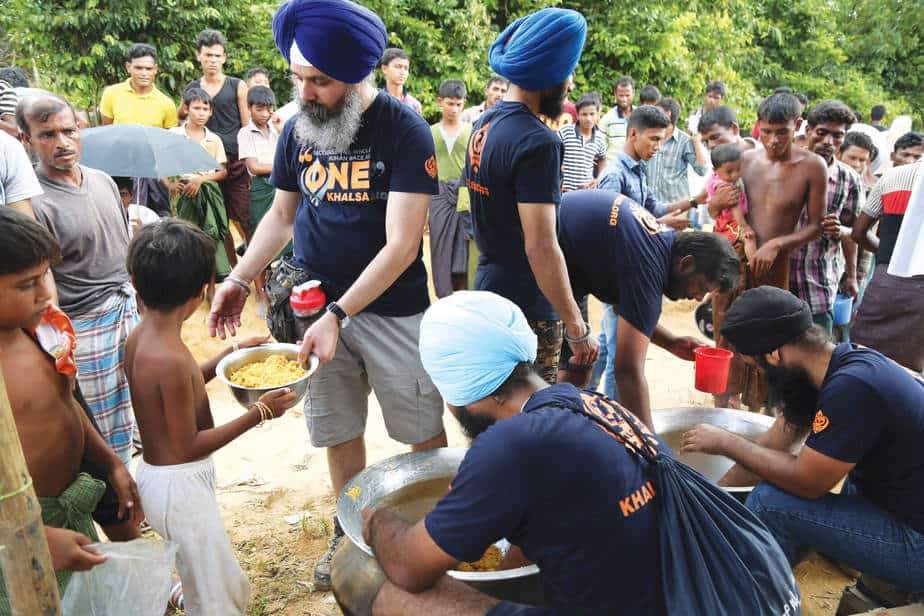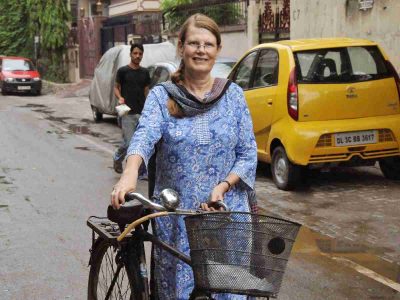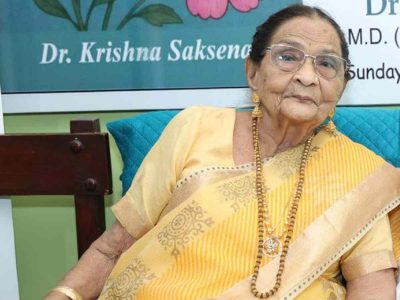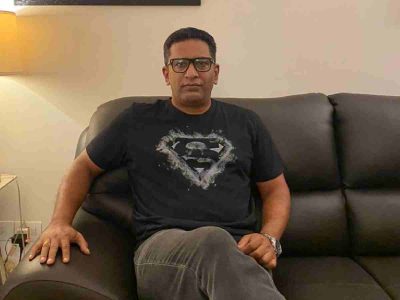J&K engineer in Bangladesh, helping Rohingya refugees
Jeevanjyot Singh, a 27-year-old mechanical engineer from Jammu, who works as a project manager in a construction company, comes across as just another regular young man. Behind his cheerful demeanour, though, lies a tough volunteer, always willing to work for the welfare of people affected by disasters and conflicts. Whenever an opportunity to be part of humanitarian aid work presents itself, Singh grabs it, taking a without-pay leave from his job for weeks together to work as a volunteer far from his home state, helping bring relief to the people in need.
Singh recently returned home from Bangladesh after two weeks of voluntary aid work in refugee camps. Along with other volunteers, he distributed and cooked meals for hundreds of Rohingya refugees as part of the food aid camp set up by Khalsa Aid International, an international non-profit aid and relief organisation which has provided aid assistance to victims of disasters and conflict regions around the world, including in war-torn Syria.
Singh is perhaps the first and the only youth from Jammu and Kashmir who has travelled to Bangladesh twice as a volunteer, working in the aid and relief camps set up for thousands of Rohingya refugees. Last year, in September, he travelled to Bangladesh for the first time as a volunteer with a couple of Khalsa Aid volunteers from Punjab. Few more volunteers from Australia and England later joined them.
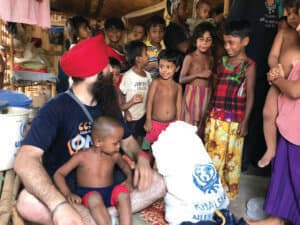
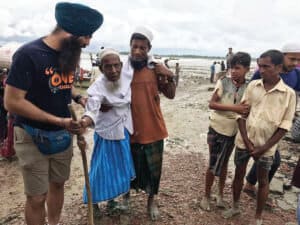
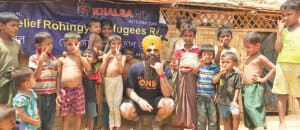
As part of the Khalsa Aid relief camps set up in the border areas in Bangladesh, Singh looked after the specific nutritional needs of Rohingya refugees for several weeks during his two trips to the region since last year. “When I went to Bangladesh last year, we had set up a relief camp close to the border and then we started cooking meals for more than 15,000 to 25,000 Rohingya refugees every day as they had been hungry and had travelled several days on foot to reach the Bangladesh border areas,” says Singh who has been volunteering for Khalsa Aid for about two years now. “It felt good to do my bit and help those people in need instead of just watching their suffering from a distance.”
Singh remembers the first day he travelled to the border areas of Bangladesh where hundreds of Rohingya refugees had poured in. They were terrified, hungry and exhausted. “They had not had food for several days, and we immediately set up a transit food camp there and provided them emergency food packets,” says Singh, adding that the project of cooking meals for the refugees went on till January this year. The volunteers of Khalsa Aid would cook meals for about 20,000 refugees every day in the aid camps, he says. “Last year we also carried out a survey on the specific needs of the refugees and then provided the families with aid kits containing about 16 essential nutritious food items which are provided to the families every month,” Singh says.
Last month, he travelled to Bangladesh again, and worked, alongside other Khalsa Aid volunteers, in an aid camp in Kuthu Palang area near Cox Bazar. Together, they coordinated and looked after Khalsa Aid projects and meal distribution programmes for the refugees. “We are trying to expand our aid projects in view of the monsoon season there, also setting up community centres and working towards fulfilling other needs of refugees there,” he says.
Although there are other aid agencies working for the Rohingya refugees in Bangladesh, looking after their health and other material needs, Singh sees a gap when it comes to fulfilling their nutritional needs, especially those of their children. “We are now focusing on fulfilling the nutritional needs of refugee families as many of their kids are malnourished and in need of nutritious food,” says Singh. “We have adopted 1000 families, for now, there whose nutritional needs are taken care of every month.”
The spirit of voluntarism also runs in Singh’s family. He is particularly inspired by his cousin, Gagandeep Singh, who began volunteering for Khalsa Aid before him, having travelled to Nepal as a volunteer for relief and rehabilitation work following the devastating earthquake there a few years ago.
Last year, Jeevanjyot took another leave from his office and went on to head a team of Khalsa Aid volunteers in the border area of Nowshera in Rajouri district that was affected by cross-border shelling. Along with other volunteers, he set up an aid camp in the border district where a team of volunteers cooked meals for about 5000 people displaced by the border shelling. He stayed there for two weeks, coordinating team efforts to bring relief to the affected families.
Singh says he is inspired by the humanitarian aid work done by Ravi Singh, the London-based CEO of Khalsa Aid International, who started the non-governmental aid organisation in 1999.
“I also look up to Amarpreet Singh who is the MD of Asia Pacific region for Khalsa Aid. He is a commercial pilot by training but he left that to engage in aid work and is currently coordinating many aid and relief projects for the needy people in several states apart from coordinating aid projects for refugees in Bangladesh and Sri Lanka,” he says.
He wants more young people from Jammu and Kashmir to come forward and engage in voluntary work. For him, there’s nothing more fulfilling than being able to come to the help of people in distress and in trying to alleviate their pain. “Given the crisis and conflicts in the world from which so many people are suffering, young people, irrespective of their faiths, should come forward as volunteers and engage in humanitarian aid work and not just wait for government help,” he says, emphasising that being kind to each other and helping each other when needed can make this world a better place to live in. “We have to work for the welfare of the whole humanity and not for any caste or religion.”
www.newslaundry.com

